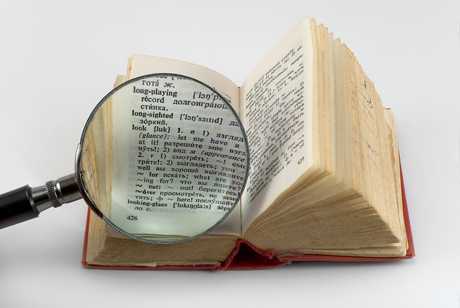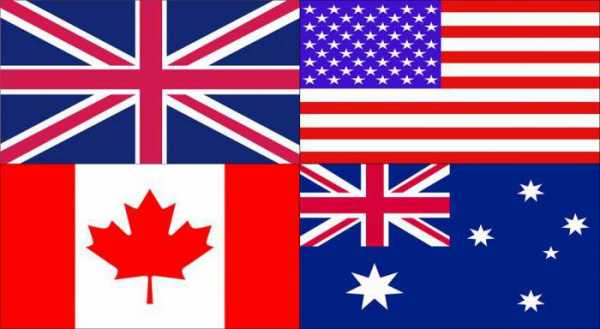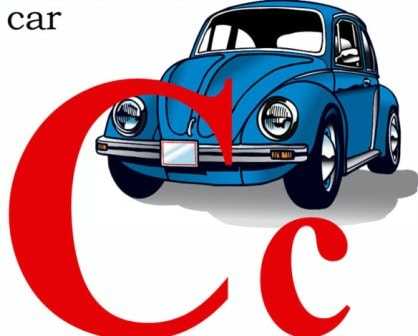Русские праздники и традиции/ Russian Holidays and Traditions. Русские традиции и обычаи на английском языке
| Every nation has its own culture and traditions. Russia is a unique country with a centuries-old history and long-established national customs. Although, it’s a well-developed country with a high level of culture, most holidays and traditions date back to pagan times. For example, Easter, Christmastide, the Kupala Night, the Shrovetide – all these events have pagan roots. I’d like to say a few words about these holidays and traditions of their celebration. Easter in Russia is a glorious feast of Christ’s resurrection. It came from Byzantium at the end of the 10th century. Since then, this holiday is widely celebrated throughout the country with beautiful and solemn rites, such as eggs’ colouring, kulich baking, paschal greeting, etc. There are many interesting events during the Christmastide. Traditionally Russians have kept a 40-day fast before Christmas. On Christmas Eve they’ve prepared a delicious meal known as “kutia”. It’s a porridge made of wheat or barley and mixed with honey. Today, people use rice and dried fruits to cook this dish. On the night of Christmas it was habitual to visit the relatives and neighbours, to eat kutia and sing carols. Young girls would also arrange fortune-telling nights. Most devout people have spent days at the church. On the Ivana Kupala, which falls on midsummer night, people arrange posh celebrations. On this day young girls wear flower wreaths on their heads and sing songs, referencing to love and marriage. The Shrovetide used to be a holiday of commemoration of the dead. Today, Russians associate this day with the end of winter. They burn a scarecrow and other unnecessary things on this day. They also cook lots of pancakes and organize costumed performances. There are many other traditions in Russia, connected with christening, wedding, funerals, etc. But if you want to get a better understanding of this country, you should visit it during the main religious holidays. | Каждый народ имеет свою культуру и традиции. Россия является уникальной страной с многовековой историей и устоявшимися национальными |
englishtopic.ru
Русские традиции Топик – Topic Russian traditions
Россия – уникальная страна, которая сохраняет национальные традиции, уходящие корнями не только в христианскую религию, но и в язычество. Христианство дало России такие великие праздники как Пасха и Рождество. А язычество – Масленицу. Древние традиции передаются от поколения к поколению.
Новый Год – самый большой праздник для русских. Считается, что как встретишь Новый Год, так его и проведешь. В канун Нового Года накрывают большой стол с изобилием блюд.
Пасха – это воскрешение Христа. Главная традиция Пасхи – покраска вареных яиц. Преобладающий цвет – красный, так как он означает новую жизнь. На Пасху русские обмениваются яйцами и теплыми пожеланиями.
Рождество – это праздник рождения Иисуса Христа, который отмечается 7 января. Перед Рождеством люди обычно убирают свои дома. Праздничный стол для Рождества готовится за несколько дней с индейкой, начиненной свининой, пирогами, кондитерскими изделиями и сладостями для детей.
Масленица – один из самых веселых праздников в России. Он знаменует конец зимы и открытие новых весенних фестивалей и торжеств. Масленица празднуется в течение недели, предшествующей посту. Каждый день Масленицы посвящен особым ритуалам.
Существуют различные интересные семейные традиции. Например, когда рождается ребенок, отец должен посадить дерево и пожелать ребенку вырасти сильным
и здоровым.Среди традиций, связанных с бракосочетанием есть такая как благословление. Когда невеста и жених готовы поехать в церковь, старейший член семьи берет со стены икону. Пока невеста и жених стоят на коленях, он крестит их этой иконой, благословляет их союз и желает долгого и счастливого брака. На церемонии бракосочетания муж и жена берут большой каравай хлеба и одновременно кусают его. Считается, что тот, у кого окажется кусок больше, будет главным в семье.
Russia is a unique country, which preserves the national traditions deeply rooted not only in the Orthodox religion but also in paganism. Christianity gave Russians such great holidays as Easter and Christmas, and Paganism – Maslenitsa, which means Pancake Day. Old traditions are passed on from generation to generation.
New Years is the biggest celebration for Russians. It is believed that the way you celebrate the New Year indicates how your year will be. On New Year’s eve, a huge meal is prepared with an abundance of dishes.
Easter is the day of the resurrection of Christ. The main tradition at Easter time is the painting of hard-boiled eggs. Red is the predominant colour, as it signifies new life. Russians exchange eggs and kind wishes for the Easter celebration.
Christmas is the holiday of the birth of Jesus Christ, which is celebrated on the 7th of January. Before Christmas Eve, people tidy their houses. The food for Christmas is prepared some days in advance, with turkey, stuffed pork, pies, pastries and sweets for children.
Maslenitsa is one of the most cheerful holidays in Russia. It marks the end of the winter and the opening of new spring festivals and ceremonies. Maslenitsa is celebrated during the week preceding the Lent. Every day of Maslenitsa is devoted to special rituals.
There are some interesting family traditions. For example, when a new baby is born, the father should plant a tree, wishing the child to grow up strong and healthy.
Among the traditions connected with wedding is blessing. When a bride and groom are ready to go to the church, the oldest member in their family takes a religious icon from the wall. While the bride and groom kneel, the family member crosses them both with the icon, blesses their union, and wishes them a long and happy marriage. At the wedding reception, the husband and wife take a big loaf of bread and bite it at the same time, without the use of their hands. Whoever gets the larger piece, it is said that they will be the leader of their family.
Топик по английскому языку Russian Holidays and Traditionals
Every country has customs and traditions. I want to tell you about some holidays and traditions of my country. Russians really love holidays. We usually celebrate them with a lot of food, presents and in big companies of relatives and friends. There are three types of holidays in Russia. They are family holidays, state holidays and religious holidays. Let me tell you about family holidays first. They include birthdays, anniversaries, weddings and others. Each family has its own traditions of celebrating this or that holiday. For example, my family celebrates my birthday for two days. On the first day I celebrate it with my parents, grandparents, my uncle and aunt. The second day of celebration is only for my close friends. They usually come in a big group with a lot of presents. I like my birthday very much.
State or public holidays in Russia include Constitution Day, New Year's Day, the International Women's Day, May Day, Victory Day and Russia Day. During these holidays, people do not work. They spend time with their families and friends or go to the centre of big cities to celebrate there. Banks, companies and some shops do not work on these days either.
New Year's Day is the major holiday in Russia. We put up a New Year tree and decorate it with colourful toys and glass balls. The main fir-tree of the country is put up in the State Kremlin Palace. Small fir trees are put up in shop windows, in streets and squares, even on roofs of buildings. A lot of people like buying natural fir trees, others prefer plastic ones. Children like the holiday a lot. They can stay up late and then get their presents. At ten minutes to midnight on the 31-st of December families gather in front of the TV-set and watch the president making his traditional speech. After the clock on the main tower of the Kremlin strikes midnight, everybody says Happy New Year and drinks champagne. After that the time for presents comes. Russian children believe that Father Frost brings presents. After all the presents are given out, Russians have fun, drink, eat, and play games all night long. Victory Day is a very important holiday for Russian history. On this day we remember those who protected our country from the German invaders during World War II. A great parade is held on this day in Red Square. Numerous war and patriotic films are shown on television. On this day people congratulate veterans and give them flowers.
The so-called religious holidays include Christmas, Easter and others. There is also a pagan holiday — Shrovetide or Pancake Day. These holidays are not state, so people usually work and study on these days. At Shrovetide, people see spring in, eat pancakes and burn a scarecrow, which symbolizes winter. Russian Christmas is celebrated on the 7-th of January, but there is no exact date for Easter, it is different every year.
Nowadays foreign celebrations are becoming more and more popular in Russia. They are Halloween and St. Valentine's Day. On Halloween Day some clubs organize parties and masquerades. St. "Valentine's Day is mostly popular with young people. They usually buy presents for their girlfriends and boyfriends such as chocolate and sweets and make greeting cards in the shape of a heart.
I like Russian holidays
www.engwebcountry.ru
Русские праздники на английском
Русские любят отдохнуть. Каждый праздник сопровождается веселыми гуляньями. Разделить радость, совместить отдых приходят друзья и близкие, стол ломится от вкусностей. Иностранцев всегда удивляли и привлекали русские традиции. При беседе с жителями Великобритании или Америки, вам лучше быть на высоте и представить свою страну в лучшем свете. Как?
Русские праздники на английском языке необходимо очертить ярким и красивым обрамлением, которое заинтригует слушателя и заставит его заострить внимание. Если вы рассказываете о каком-либо событии, то не углубляйтесь в детали, пройдитесь поверхностно по теме, перечисляя русские традиции на английском. Однако если того требует ситуация, можно и раскрыть все тайны исторических или современных обычаев.
Если рассматривать грамматическую сторону, то будьте проще. Рассказывая о русских праздниках на английском языке, не используйте длинных и сложных конструкций. Сделайте вашу речь максимально доступной для понимания. Ну что же, основные рекомендации даны. Пора переходить непосредственно к тексту.
Having a holiday is always great fun in many ways. First of all it is because of people have a day off, secondly it is the way of relaxion from everyday’s routine. In every country you can find public and religious holidays. What is about Russia?
The New Year is one of the public holidays. It is the favourite day for many people. Many preparations are made before it. You should buy a Christmas tree, decorate it. Mothers and wives are busy with cooking. There is much delicious food on the Russian table. People dress beautiful clothes. They greet the new year with champagne and listen to the Kremlin chimes beating 12 o’clock. And the next day everyone looks for a present under the Chrismas tree which has been left by Father Frost. What is more exciting is New Year holidays. They last from the 1st of January to the 5th.
Unlike Catholic Christmas, Orthodox Christmas comes a week after the new year. Different festivals of all kind take place in the streets. This holiday is surprising time. Heart is filled with miracle expectation… And this miracle occurs! «The Christ is born, glorify! » — Rushes over the Universe, — «the Christ from heavens, meet! ». Christmas can be called a family holiday. Everyone tries to spend it with relatives.
One of the most admirable holidays is Maslenitsa. People see off winter, and open themself for spring. It is celebrated during the last week before the Lent. During this time people visit their friends, bake pancakes. If we look back to the history we will find that each day has its own tradition. On Monday people meet the pancake week. On Tuesday there is folk tunes. On Wednesday the mother-in-law invite to pancakes her sons-in-law with wives. On Thursday people usually sledge. On Friday sons-in-law call the mother-in-law on entertainment. Saturday is usually taken as meetings with sisters-in-law. Sunday is called «day of pardon». This day everyone try to see friends, relatives and acquaintances, exchanged kisses, bows and are sorry if they have offended acts or words.
One of the most popular holiday in Russia is the 8th of March. This day men and sons bring flowers and presents for their wives, women, mothers, grandmothers. Women wait from men for signs of attention, colours and gifts. Almost everybody has day off.
The most important orthodox holiday is Christ’s Revival which is also called Easter. This day is familiar to everyone since childhood. Brightly painted eggs, tasty smelling Easter cakes full the atmosphere of this day. People prepare for celebrating this day beforehand. On Saturday believers bake Easter cakes, bear them in church with painted eggs for consecration. It is the symbolical value. The people go from Saturday to Sunday’s night in a temple on Easter divine service. After this people say «Christ Voskresi! ». and answer: «Truly Voskresi!
Victory Day is celebrated on May 9. This day the millions fallen in World War II are commemorated. Flowers are laid on wartime graves, veterans come out into the streets wearing their military orders and medals. Independence Day Russia celebrates on the 12th of June.
So, there are many others holidays in Russia with many traditions and customs which are also very interesting .
Vocabulary:
- preparations — приготовления
- greet the new year — приветствуют наступление нового года
- Father Frost — Дед Мороз
- Orthodox — православный
- The Christ is born, glorify! — Славьте! Христос родился!
- the Christ from heavens, meet! — Сын божий с небе спустился! Встречай!
- see off winter — провожают
- the Lent — великий пост
- bake pancakes — печь блины
- sledge — кататься на санках
- day of pardon — «Прощеное воскресенье» — день прощения
- exchanged kisses — обмениваться поцелуями
- are sorry each other if have offended acts or words — просить прощения за все слова и поступки
- Christ’s Revival — воскрешение Христа
- symbolical value — символическую ценность
Как видите, русские праздники на английском довольно легко понять и запомнить. Согласитесь, что намного легче рассказывать о том, что знаешь, что тебе близко, хорошо знакомо. Не приходится запоминать огромное количество дат и названий. Стоит только подучить несколько выражений. Если же вы хотите познакомиться с английскими «красными датами» календаря, то загляните в нашу статью «Английские праздники». Там вы найдете не только перечисление основных знаменательных событий, но и непосредственно топик.
azenglish.ru
Russian traditions - топик на английском
Almost every nation and country has a reputation of some kind. The Englishmen are reputed to be cold, reserved, easy-going and fond of sport. They are the nation of stay-at-homes. "There is no place like home", they say. The English man's home is his castle is a saying known all over the world. They prefer a small house built for one family, with a small garden are a fire in the centre of the house. They like animals very much and follow the traditions concerning food and meals. We know much about English traditions and customs but now I'd like to say a few words about the traditions of my native land - Russia.
To my mind, the main traits of their characters which differ them from other people are hospitality, their "open heart", "golden hands", wise Russian fairytales reflect this wisdom. Our people are hardworking, patient, never loosing hope for better life. The Russians are the talented nation. Russia gave the world beautiful names of Pushkin and Lermontov, Chaikovsky and Repin, thousands of names of world famous poets, writers, composers, scientists. All of them are the pride of the nation because they sand the beauty of our nature and people.
Besides these great names in literature and music, our country is famous for Russian traditional specific crafts its skilled craftsmen. Painted boxes of Palekh, coloured shawls of Pavlov Posad, clay toys of Dymkovo, laces of Vologda are known all over the world. The names of Gzhel and Khokhloma are considered to be the symbols of Russia as well as matryoshkas and samovars. The history of khokhloma goes back into the 17th century Producing of tableware-dishes, spoons, mugs was begun at that time in the villages of Suomino and Khokhloma in the Nizhniy Novgorod Province. On the banks of the great Russian river Volga. Many carpenters, painters have been working since then reviving traditions of old masters. The Khokhloma style is characterized by using plant elements in painting the tableware. The prevailing colours are black, yellow, golden, green and red. And nowadays this craft is sure to be saved, it will be developed and brought into the future by the new generation of painters. The reviving of old crafts is connected with the reviving of the traditional arts of all peoples inhabiting our big country. There are 100 of them. They revive their culture, costumes, dances and language. It is the revival of our souls. Now we celebrate the forgotten holidays - Troisa, Maslenitsa, Easter. We again sing Russian folk songs and chastushki, dance Barinya and perform khorovods, ride in troikas.
Traditional Russian cooking is world-famous for such dishes as okroshka, shi, pelmeny, kurnik, kvas.
We begin to build and reconstruct churches as well. The example of it is the building of the Cathedral of Christ the Savior in Moscow. It is the symbol of reviving human feelings, national pride and patriotism.
www.native-english.ru
| There are lots of holidays and celebrations Russia both national and foreign. Even though many Russians celebrate world holidays, such as St. Valentine’s Day, April Fools, Halloween and others, there are a number of purely Russian national holidays, which are celebrated only in Russia. These holidays emphasize the spirit of nation and support folk traditions. One of the most interesting holidays in Russia takes place at the end of February to celebrate the end of winter. The holiday lasts for a week which is known as a Shrovetide. In Russia this holiday is called “Maslennitsa”. People traditionally eat lots of pancakes on this holiday and burn the scarecrow saying farewell to winter snow. Another traditionally Russian celebration takes place on January 7th, which is an Orthodox Christmas. People visit their relatives on this day carrying rice pudding with raisins, which is called “kutya”. Many young and single girls try to read their fortune on the night of 6th and 7th January. Russian weddings are also very joyous events and they differ a lot from other countries. There is a special person on Russian weddings called “tamada” who entertains the guests by various toasts and games. Every June many Russians celebrate the holiday called “The night of Ivan Kupala”. People traditionally weave the wreaths from wildflowers, make the bonfires and swim in lakes on the night of this day. | В России есть много праздников и торжеств как национальных, так и зарубежных. Хотя многие россияне отмечают мировые праздники, такие как День Святого Валентина, 1 Апреля, Хэллоуин и другие, существует ряд чисто русских национальных праздников, которые празднуются только в России. Эти праздники подчеркивают дух нации и поддерживают народные традиции. Один из самых интересных праздников в России происходит в конце февраля, чтобы отметить окончание зимы. Праздник длится в течение недели, которая известна как Масленая неделя. В России этот праздник называется “Масленица”. Люди традиционно едят много блинов в этот праздник, и сжигают чучело, прощаясь с зимним снегом. Другой традиционный русский праздник проходит 7 января, это православное Рождество. Люди посещают своих родственников в этот день, принося рисовый пудинг с изюмом, который называется “кутья”. Многие молодые и одинокие девушки пытаются прочитать свою судьбу в ночь с 6-го на 7-ое января. Русские свадьбы тоже очень радостные события, и они сильно отличаются от других стран. На русских свадьбах присутствует специальный человек под названием “тамада”, который развлекает гостей различными тостами и играми. Каждый год в июне многие россияне отмечают праздник под названием “Ночь Ивана Купала”. Люди традиционно плетут венки из полевых цветов, разводят костры и купаются в озерах, в ночь этого дня. |
englishtopic.ru
Тема "Праздники России" (Russian holidays)
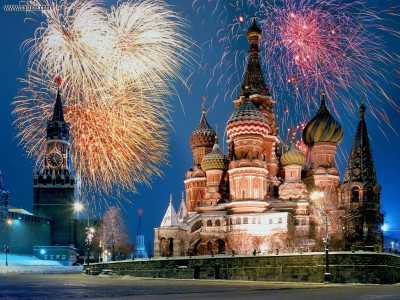
Like the whole world, Russian people love celebrating their holidays. Celebrations in Russia reflect many aspects of its history, culture and traditions. Some Russian festivities are official public holidays and government offices, schools and banks have their days off. These are New Year (January, 1st – 5th), Orthodox Christmas (January, 7th), Defender of the Motherland Day (February, 23rd), International Women’s Day (March, 8th), Spring and Labour Day (May, 1st), Victory Day (May, 9th), Russia Day (June, 12th), National Unity Day (November, 4th) and Constitution Day (December, 12th).
The Russians usually celebrate holidays with plenty of food and presents. The most popular holiday is New Year’s Day. Russian people decorate fir-trees, cook delicious meals, make fireworks. All children wait for Father Frost and his granddaughter Snegurochka to get presents from them. On Christmas people visit their relatives and friends and tell fortunes.
Defender of the Motherland Day is also known as Men’s Day because all Russian men and boys, active servicemen and war veterans get warm greetings and special presents from their families, friends and colleagues. International Women’s Day has been celebrated in Russia since 1913 and it is the day for all mothers, sisters, wives, daughters and girlfriends. Spring and Labour Day appeared in Russia on the 1st of May in 1890 after the strike of Chicago workers who demanded an 8-hour working day.
Victory Day is a sacred and dramatic holiday for Russia. The whole country commemorates millions of victims of the Great Patriotic war. Russia Day became a national holiday after the Declaration of Sovereignty was adopted in 1991. And National Unity Day commemorates the liberation of Moscow from Polish occupation in 1612 and it is celebrated with parades. Constitution Day is a celebration of the adoption of the Russian Federation Constitution in 1993.
Unofficial Russian holidays are also observed. There are religious and foreign celebrations among them: Old New Year (January, 14th), St. Valentine’s Day (February, 14th), Orthodox Easter Sunday, Maslenitsa, Cosmonaut’s Day (April, 12th), Halloween (October, 30th) and Mothering Sunday (in November).
Some Russians celebrate the New Year according to the Julian calendar that was used in Russia before 1918 and they call this holiday Old New Year. Easter is always celebrated with painted eggs and church services. Maslenitsa is a holiday of meeting the Russian spring with such rituals as eating pancakes and burning a dummy of winter.
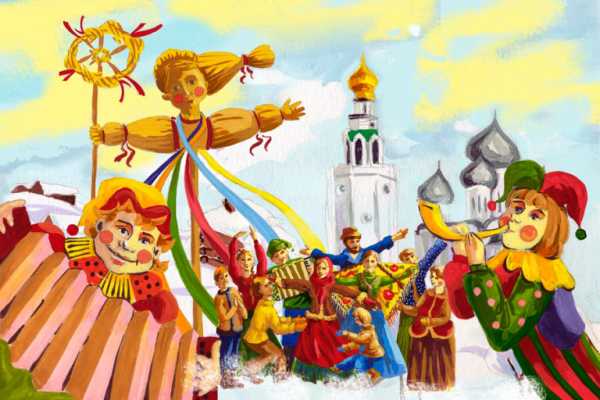
Перевод
Как и весь мир, русский народ любит отмечать праздники. Торжества в России отражают многие аспекты ее истории, культуры и традиции. Некоторые русские праздники являются официальными общественными праздниками, и у правительственных учреждений, школ и банков в эти дни выходной. Это Новый год (1-5 января), православное Рождество (7 января), День защитников Отечества (23 февраля), Международный женский день (8 марта), День Весны и Труда (1 мая), День Победы (9 мая), День России (12 июня), День Национального единства (4 ноября) и День Конституции (12 декабря).
Русские обычно отмечают праздники обилием еды и подарков. Самым популярным праздником является Новый год. Русский народ украшает елки, готовит вкусные блюда, устраивают фейерверки. Все дети ждут Деда Мороза и его внучку Снегурочку для того, чтобы получить от них подарки. На Рождество люди навещают своих родственников и друзей и гадают.
День Защитников Отечества также известен как День мужчин, так как все русские мужчины и мальчики, все состоящие на военной службе и ветераны войны получают теплые поздравления и особые подарки от своих семей, друзей и коллег. Международный Женский день празднуется в России с 1913 г., и это день для всех матерей, сестер, жен, дочерей и любимых девушек. День Весны и Труда появился в России 1 мая 1890 г. после забастовки рабочих Чикаго, которые требовали 8-часовой рабочий день.
День Победы – священный и драматичный праздник для России. Вся страна чтит память миллионов жертв Великой Отечественной войны. День России стал национальным праздником после принятия Декларации о Суверенитете в 1991 г. А День Национального единства напоминает об освобождении Москвы от польской оккупации в 1612 г, и отмечается проведением парадов. День Конституции является празднованием принятия Конституции РФ в 1993 г.
Существуют также и неофициальные русские праздники. Среди них есть религиозные и иностранные торжества: Старый Новый год (14 января), День св. Валентина (14 февраля), православная Пасха, Масленица, День Космонавтики (12 апреля), Хэллоуин (30 октября) и День Матери (в ноябре).
Некоторые русские отмечают Новый год согласно Юлианскому календарю, который использовался в России до 1918 г., и называют его Старым Новым годом. Пасху всегда отмечают крашеными яйцами и торжественными богослужениями. Масленица – это праздник встречи русской весны с такими ритуалами, как угощение блинами и поджигание чучела зимы.
Тема "Праздники России" (Russian holidays) - 4.4 out of 5 based on 68 votes
Добавить комментарий
s-english.ru

